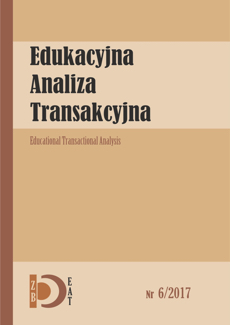The Ego States of Peer Tutors. The Effects of the Pedagogical Innovation “The Professional Passions – the Program with the Use of Peer Tutoring Method”
DOI:
https://doi.org/10.16926/eat.2017.06.11Keywords:
Ego States, school tutoring, peer tutoring, pedagogical innovationAbstract
Between 2015–2018 one of the schools in Płock was implementing a pedagogical innovationwhich used peer tutoring. It involved the support of trained students-tutors given to their younger colleagues from other schools in the choice of profession. Interestingly, the same school also uses the method of an educative-developmental tutoring, which involves creating relationships between the teacher-tutor and his pupil. Thus, in the same place we can be find students who have their own tutors, who are tutors themselves, or who experience both of these realities. This perspective stimulated research curiosity of the author of this article, who decided to determine if students who experience different types of tutoring are differentiate Ego states.
Downloads
Downloads
Published
How to Cite
Issue
Section
License
I am aware that the Educational Transactional Analysis journal is published under a Creative Commons license - Attribution (https://creativecommons.org/licenses/by/4.0/legalcode).
By submitting the article, I agree to make it available under this license

